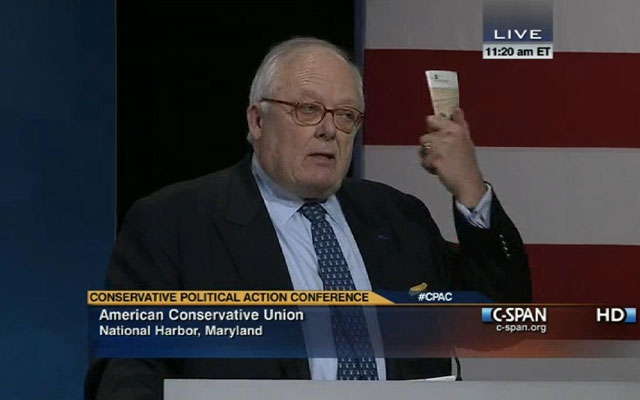How do conservatives continue to advance their ideas?
That was the big question answered by retiring Heritage President Dr. Ed Feulner, who led off a panel discussion also featuring the presidents of other leading think tanks at the Conservative Political Action Conference (CPAC) over the weekend.
“One of our objectives coming out of CPAC has to be to add and multiply, not to divide and subtract,” said Feulner. “We’ve got to be able to talk fundamentally about what we agree on, and about what’s best for all the American people in terms of opening up that ladder of opportunity.”
Arthur Brooks, president of the American Enterprise Institute, said that often, conservatives are too busy fighting about policy instead of fighting for people.
“We’re doing exactly what it takes to lose the argument,” said Brooks. “Do you want to win? Start fighting for people, instead of fighting against things.”
Feulner emphasized that think tanks have a significant role in demonstrating how conservative ideas help people.
“There are basically two kinds of politics in the United States. There is what we all worked in and were involved in last November, electoral politics. Then there is what we now have, policy politics: what happens after the guys and gals are elected and sworn in,” he said.
John Allison, president of the Cato Institute, said he was optimistic about the future of limited government and liberty, because progressive policies are unsustainable.
“They have made huge promises that cannot be fulfilled. They have offered something that is a big lie,” said Allison. “So one of our tasks is really helping people see that what’s being offered won’t work.”
Feulner said one of the ways think tanks can help demonstrate that conservatives care about people is to change how policy organizations measure success.
“We measure inputs—how many people work for us, what’s the size of our budget, all that. Then you go through a stage and you measure outputs—how many conferences did you have, how papers did you produce, how many times were your gals and guys on TV,” he said. “What we have to get to, is how do we measure outcomes?”
“You’ve got to personalize things,” said Feulner. “You can’t talk to people about billions and trillions. You’ve got to bring it down to real numbers.”



























